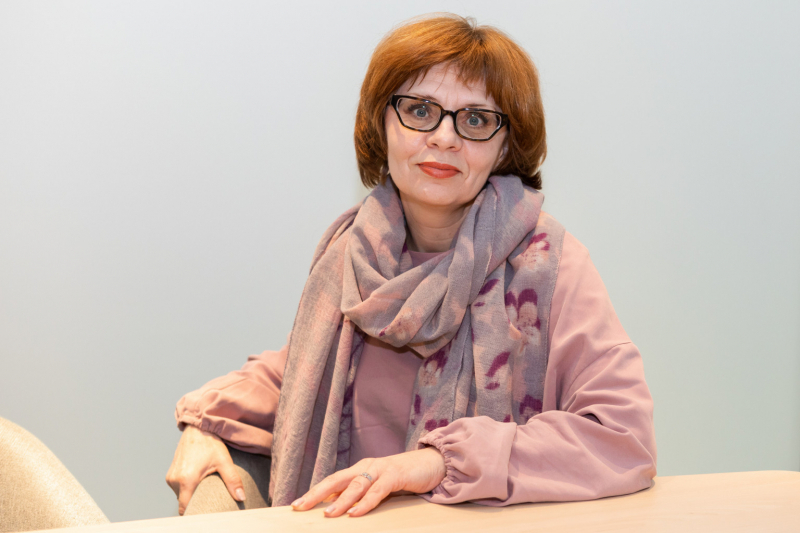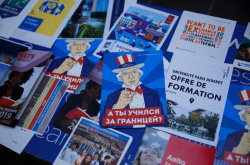To St. Petersburg for soft skills
The program brings together five universities: ITMO University, Russian Foreign Trade Academy, National Research Nuclear University MEPhI, Peoples’ Friendship University of Russia, and the Russian Presidential Academy of National Economy and Public Administration. As the only St. Petersburg-based university, ITMO accepts twice as many students as any Moscow-based participant of the program. A total of 60 applications were submitted by incoming students, most of them coming from the Russian Presidential Academy of National Economy and Public Administration and National Research Nuclear University MEPhI. Starting from September 1, 50 students who have successfully passed the selection will be having their first classes in accordance with their individual learning tracks.
Courses in IT and soft skills were the top choices among those coming to ITMO and, according to Yulia Vasileva, head of the university’s Department of Program Design and Implementation, this is no coincidence.
“ITMO has a unique approach to teaching soft skills. Whereas at other universities, they are mostly studied within electives or additional courses, here they are part of a compulsory curriculum based on an educational standard. We equip all our students with these key competencies. Over the years since we’ve started developing the soft skills module, we’ve seen some courses grow particularly popular with our students. And now we know that students from other universities are also interested in them,” says Yulia Vasileva.
To Moscow for a broader outlook
18 ITMO students applied for the program, with 14 selected to travel to Moscow for the coming semester. They will all receive financial support from ITMO to cover their travel and accommodation costs.
Six students will go to MEPhI, six more – to Peoples’ Friendship University of Russia, and two will go to the Russian Presidential Academy of National Economy and Public Administration. There, they will take courses in social sciences and humanities, including business, marketing, economics, journalism, and art.
This semester, DVIZH was most popular with students of the Faculty of Software Engineering and Computer Systems, Faculty of Biotechnologies, Faculty of Technological Management and Innovations, and the Center for Chemical Engineering.
Changing subjects, tracks, and interests
This variety of courses chosen by ITMO University students corresponds to the goals of the program, explains Yulia Vasileva. In conditions of uncertainty, some of the key qualities are the ability to quickly adapt to changes and make choices out of many alternatives. These are the competencies that the organizers want to pass on to students participating in the program.
“The world is constantly changing, and we can’t be sure what happens tomorrow. Without the experience of changing their educational environment, bridging communication difficulties, and switching their educational trajectories, students will find it hard to cope with this changing world. At ITMO, students and lecturers are equally involved in education, while the university constantly increases the number of available opportunities. Our students make their own decisions – and this is a courtesy we offer to our incoming students, too. They can test the waters in other subjects and models of interaction with their academic environment, the university, and the faculty. This program is meant for those who are ready to pause along the way and explore something new,” says Yulia Vasileva.

Yulia Vasileva. Photo by Dmitry Grigoryev, ITMO.NEWS
From IT to blogging
This approach of ultimate diversity and experiment was behind the selection of courses offered to incoming students at ITMO. Though the majority of them fell into the field of IT and other subjects the university specializes in (including bio- and laser photonics, digital humanities, mathematical methods, and others), students could also choose something from a variety of courses in soft skills and specialized subjects for young scientists and activists. For instance, they could opt for courses in public speaking, information processing, creative practices and project activities, as well as developing social projects, launching a student club, or blogging as a scientist.
Out of the 42 courses offered by ITMO, some were optional ones created within the Students for Students initiative.
“We believe that learning from your peers is a unique and, as we could see, highly sought-after experience. That’s why we found it important to include optional courses in this mobility program. I believe this will give our guests a true taste of ITMO’s special atmosphere,” shares Yulia Vasileva.
This academic year will be a debut for DVIZH that will define the program’s prospects for the future. However, already at this stage the engagement of students is an evident sign to continue, concludes Yulia.





